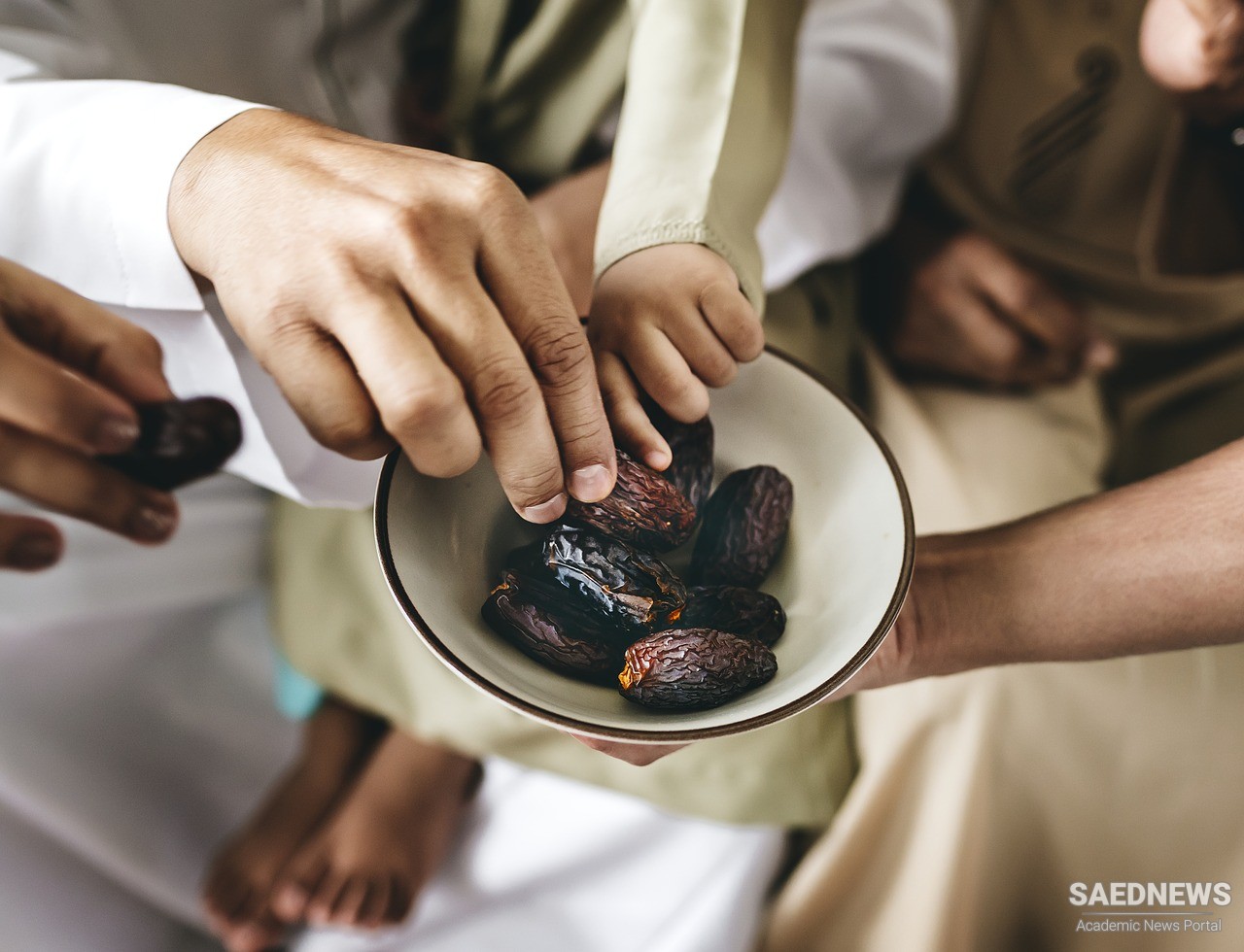The primary fast in Islam, and one of its Five pillars, takes place during the month of ramadan, when observant Muslims refrain from eating, drinking any liquids, smoking, or having sexual intercourse during daylight hours. The beginning and end of the fast each day are marked by calls to prayer: before dawn, when a white string can be distinguished from a black one, and again at sunset. Muslims generally break their fast with a drink of thick fruit juice and a date, after the custom of mUhammad (d. 632). Some will then pray before a large meal (futur), consisting of dishes special to the month, is served. These meals are occasions for families to gather and for neighbors and friends to visit one another. Indeed, it is not unusual for large quantities of food to be consumed at night during Ramadan, despite the daylight fasting requirements. The end of the month and of the fast is marked by the id al-Fitr, or “feast of fast-breaking.” Muslims look to the quranic chapter “The Cow” (Q 2:183) as the injunction from God to fast. It reads, “O you who believe! Fasting is prescribed for you, as it was prescribed for those before you, so that you may guard against evil.” Although children often participate for a few hours a day or a few days in the month, all Muslims who have reached puberty are expected to fast. Temporary exceptions are made for those who are in poor health, for those who are traveling, or for menstruating and pregnant women, with the idea that these missed fast days will be made up at a later date. Outside the month of Ramadan, fasting is also observed on the day before the id al-adha, which marks the end of the formal hajj season. Some Muslims, mostly Shia, also fast on Tuesdays and Thursdays throughout the year, but especially during the months of Shaaban and Rajab. In addition to fulfilling a religious requirement, fasting is associated with a variety of other benefits. For some, it presents an opportunity to focus on one’s spiritual life. Indeed, many Sufis are known to include extended fasts in their religious practice. For others, the feelings of hunger are an important reminder of the plight of less fortunate members of the community. For still others, fasting may be performed as an act of expiation for a broken promise. Finally, fasting is seen as providing beneficial health effects.


 Fasting in the Lunar Month of Ramadan
Fasting in the Lunar Month of Ramadan














































